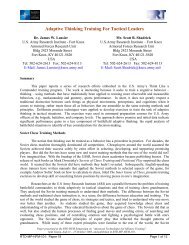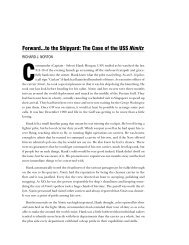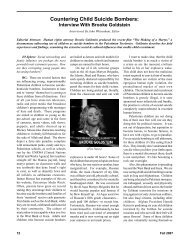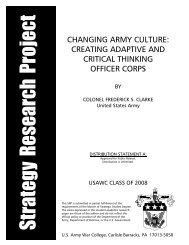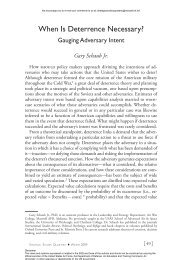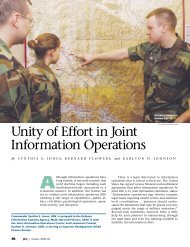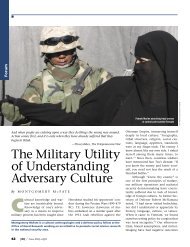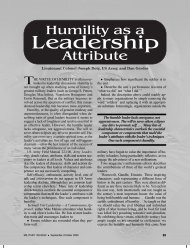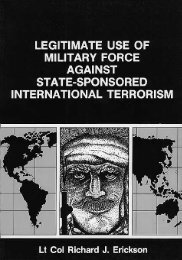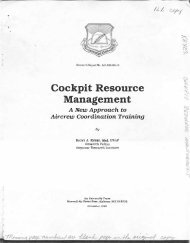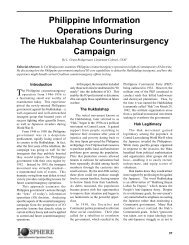Socioeconomic Roots of Middle East Radicalism
Socioeconomic Roots of Middle East Radicalism
Socioeconomic Roots of Middle East Radicalism
Create successful ePaper yourself
Turn your PDF publications into a flip-book with our unique Google optimized e-Paper software.
RICHARDS 37<br />
The orthodox economic growth strategy also faces formidable obstacles elsewhere,<br />
where it might plausibly work, such as in the “newly industrializing<br />
countries” <strong>of</strong> North Africa, Egypt, Iran, and possibly Jordan. Here the needed<br />
policy shifts may themselves be destabilizing, not only because the necessary<br />
changes involve austerity but because challenges face special interests that are<br />
major props <strong>of</strong> regime support and that occupy important, subsidized positions<br />
within the bureaucracy. Examples range from <strong>East</strong> Bank Jordanians to Egyptian<br />
workers in state-owned enterprises.<br />
In the long run, the needed changes are also likely to destabilize in another<br />
way. Attracting the necessary volume <strong>of</strong> investment will almost certainly require<br />
greater governmental accountability and more transparent rules <strong>of</strong> the economic<br />
game. This is not to say that democracy is needed for growth but only to<br />
suggest that it is unlikely that regimes will attract the necessary private capital<br />
from their own citizens, or foreigners, if they persist in arbitrary, authoritarian<br />
practices. Since there is good reason to suppose that continued authoritarianism<br />
is in itself one <strong>of</strong> the causes for radicalism, and since continued unaccountable<br />
governance undermines economic growth, institutional change in the direction<br />
<strong>of</strong> greater participation and enhanced governmental accountability may constitute<br />
a key element <strong>of</strong> long-run stability. 19<br />
The problem is, <strong>of</strong> course, that the<br />
transition from the current situation <strong>of</strong> authoritarian unaccountability is likely<br />
to be a rocky road.<br />
The truth is that outsiders are largely (but not entirely) irrelevant to the process<br />
<strong>of</strong> deep institutional and cultural change that, alone, can ultimately overcome<br />
the pr<strong>of</strong>ound, multitiered crisis facing the Muslim world. The United<br />
States can and must refrain from behavior that will provide fuel for fanatical arguments<br />
and discourage those in the <strong>Middle</strong> <strong>East</strong> who would respond differently<br />
to their own societies’ crises. U.S. foreign policy can play a role here. It must<br />
also continue to seek a settlement in the conflict between the Palestinians and Israelis.<br />
Any resolution will be, to say the least, enormously difficult. However, the<br />
United States will not have peace with the young Arabs until that situation is<br />
resolved.<br />
The United States also has an opportunity to contribute to change by modifying<br />
its policies, especially toward Iran. U.S. energy policies have long been stunningly<br />
myopic, and Americans continue to pay at the pump for many a Salafi<br />
madraseh (school).<br />
Regrettably, current indications are that U.S. policies will do little to ameliorate<br />
these problems. There is a tendency in current U.S. discourse to attribute the<br />
entirety <strong>of</strong> the problem to cultural failings in the Muslim world and to imagine<br />
that military power can tamp down if not resolve complex social, economic, political,<br />
and cultural struggles. This is unlikely. 20 Sadly, it appears probable that



